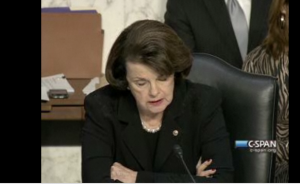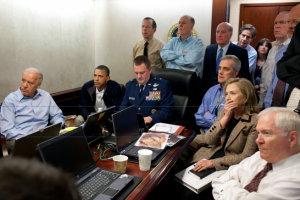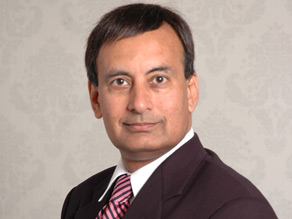The Anonymous DOJ Handmaiden of Political Whim
Adam Liptak has an odd story on the increasing use of technology to pursue leaks.
I find it odd for two reasons. In spite of the fact that he nods to technology and has Lucy Dalglish relate the same story I described here, in which a national security representative told her “they know” who journalists are talking to:
“I was told in a rather cocky manner” by a national security representative, Ms. Dalglish recalled, that “the Risen subpoena is one of the last you’ll see.”
She continued, paraphrasing the official: “We don’t need to ask who you’re talking to. We know.”
He doesn’t talk about the means to get that information–neither the internet based collection methods nor the FBI’s new Domestic Investigation and Operations Guide rules which allow the government to get journalist call records without a subpoena in some cases. It seems important to explain that the new circumstances involve not just technology, but also a unilateral change in legal policy with regards to the communications of journalists (albeit one that mirrors a similar change for all other Americans).
The government can prosecute more leaks now because the technology has enabled them to change the rules on journalists without, thus far, any significant outcry.
The other funny part of the Liptak story is this anonymous lie from a DOJ official explaining DOJ’s selective enforcement of leaks.
“The Justice Department has always taken seriously cases in which government employees and contractors entrusted with classified information are suspected of willfully disclosing such classified information to those not entitled to it,” a department official explained. “As a general matter, prosecutions of those who leaked classified information to reporters have been rare, due, in part, to the inherent challenges involved in identifying the person responsible for the illegal disclosure and in compiling the evidence necessary to prove it beyond a reasonable doubt.”
This statement is, of course, utter horseshit. Take the Nicholas Schmidle story revealing key, top secret details of the Osama bin Laden raid, or the example of John Brennan speaking on the record about a topic that the government has told courts is a state secret. Those sources are pretty easy to find. The sources involved are pretty clearly John Brennan, James Cartwright, Ben Rhodes, Marshall Webb and … John Brennan again. All those men have Top Secret clearances which would make it easy for the government to get their call records. From there, the government would have the same kind of evidence they’ve got tying Jeffrey Sterling to James Risen.
Only, the government is not going to prosecute those violations of secrecy. Not because they don’t have the evidence or couldn’t prove their case. But because these leaks serve a political purpose that people high up enough in the Administration has apparently deemed more valuable than all the claims they make–occasionally with good reason–about the importance of keeping national security information secret.
And that, I suspect, is why this DOJ official has said this anonymously. Because it’s the other part of the equation, the one that undermines DOJ’s claim to be enforcing rule of law, that gets really embarrassing. DOJ won’t or can’t describe its full approach to leaks–which is to pursue those it can that are deemed embarrassing by the political powers that be, but to ignore those that are deemed useful.
DOJ needs to keep this a secret, because admitting it would be to admit they are now the handmaiden of not the law, but political whim.
Political whim, backed by intrusive new technologies and unilateral rule changes about the deference shown to journalists.



